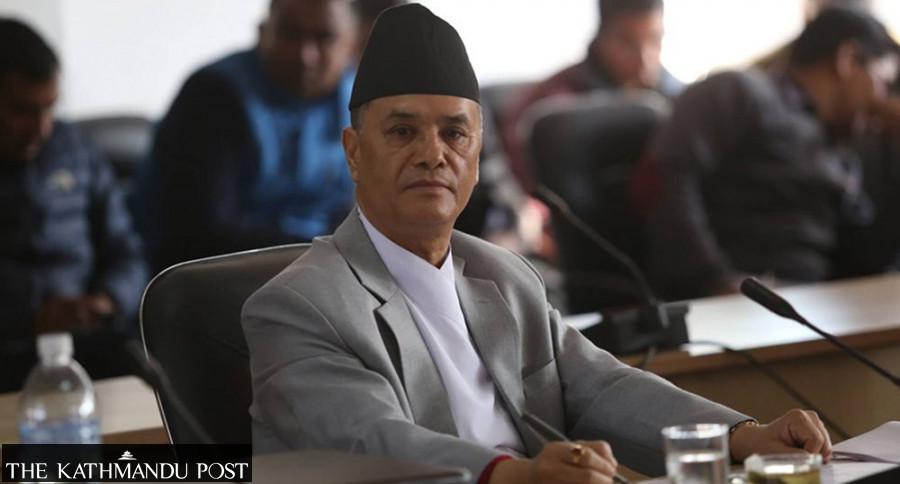Editorial
Master out of class
It may never have been necessary to push for a lottery system had they have faith in the leader.
Eighteen judges of the Supreme Court have finally agreed to implement a lottery system for allocating cases effective from December 1. This brings to an end the tradition of the chief justice assigning legal cases to the benches. One reason the full court and Nepal Bar Association members pressed their demand to implement the system of allocating cases through a draw of lots could only be seen as a lack of confidence in their leader. The justices agreeing on this to resolve the ongoing impasse to salvage any honour left for the judiciary raises crucial questions, primarily on the integrity of the chief justice. It may never have been necessary to push for a lottery system had they have faith in their leader.
It seems that a lottery system was brought primarily to redress Chief Justice Rana's wrongs and find a middle ground. Drawing lots may result in a case being assigned to a judge who may not be an expert on that particular issue. Since the judges may not hear cases based on expertise, there is a likelihood that landmark verdicts may not be seen on some crucial matters. However, the lottery system seems to be the only way to bring back some order to the ongoing debacle, which has protracted for more than a month, for all its challenges and questionable outcomes.
The judiciary, often considered to be one of the three pillars of state powers, is perhaps going through its darkest phase in its long and mostly unblemished history. When the legislative body has been rendered defunct by the actions of politicians, the one remaining beacon of hope—the judiciary—has been thrown into turmoil. The two representative bodies of legal experts, the Nepal Bar Association and the Supreme Court Bar Association, questioning the involvement of the chief justice raises doubts about the integrity of the person at the helm. The system of allocating cases by the chief justice had never been questioned up until now.
This conundrum has led to delays in providing the essential task that most appropriately defines the judiciary's function—justice. Neither has it been able to prevent excesses of the executive. The political parties that usually take every opportunity to express their opinions have all managed to skirt the issue regarding this mess. There has been no talk of impeachment of the chief justice, either by the ruling alliance or the opposition. Politicians that usually leave no stone unturned in the pursuit of such matters, if the consequences of their action would result in an outcome favourable to them, have decided collectively to regard the ongoing crisis as inconsequential. This itself raises eyebrows. Therefore, should we consider their move in maintaining a collective silence to be in their favour?
As the adage goes, actions speak louder than words. It makes a poignant case here. And like always, the adversely affected is the general public that has been reduced to being mute spectators to the ongoing mess.




 20.9°C Kathmandu
20.9°C Kathmandu














